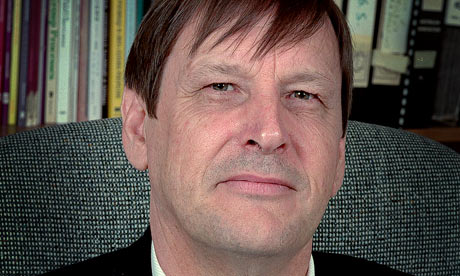
How do individual minds make possible groups and society, and how does society change individual minds? For four decades, the social psychologist John Turner, who has died aged 63 after a lengthy illness, confronted his discipline's central challenge.
The simplicity of Margaret Thatcher's 1987 assertion about society – "There is no such thing! There are individual men and women and there are families" – is politically and/or scientifically attractive to some. Others favour a no-fault social determinism, in which the individual mind falls helpless victim to social pressure. John's immense contribution lay in his development of a precise, testable and now strongly supported theory that explains how mind and society create each other.
In the research that led to his PhD (1975) at Bristol University, he was supervised by Henri Tajfel, who had observed that once people make a division into categories, they tend to emphasise the similarities within groups, and the dissimilarities between them. Together, the two developed social identity theory, pointing to people's tendency to categorise themselves into groups in order to gain a greater sense of who they are, with consequences for self-esteem, prejudice and stereotyping.
These insights generated a new psychology of intergroup behaviour and social change. Now it dominates the field, and is used to address everything from the Arab spring to football hooliganism and anti-cuts protests.
Lecturing posts followed at Bristol, and in 1982-83 John was a scholar at the Institute for Advanced Study in Princeton, New Jersey. He moved to Macquarie University in Sydney, and then, in 1990, to the Australian National University in Canberra. There, he was professor of psychology until retiring as emeritus in 2008.
His book Rediscovering the Social Group (1987), produced in collaboration with his PhD students Michael Hogg, Penny Oakes (his second wife), Steve Reicher and Margaret Wetherell, explores the relationship between the individuality of the person and the social reality of group identity and action. John made a characteristic break with received wisdom in insisting that rather than the group being a distortion and simplification of people's individuality, it reflects the true nature of humanity. "We" is often a more useful and valid expression of self than "I".
Stereotyping and Social Reality (1994), written with Penny Oakes and Alex Haslam, explores the radical implication that, far from being unresponsive caricatures, our stereotypes of self and others reflect our relationships with those others and vary as social reality changes. "We Londoners", for example, can mean different things – and self-categorisation as a Londoner engenders different norms and behaviour – in peacetime and war, and if London is compared with another British city rather than the capital of another country.
John showed that shared social identity is necessary to social co-operation, cohesiveness and leadership. Only when we come to see another person as "us" rather than "them" are we motivated to help, collaborate with, and follow them. The route to sustainable social and behavioural change – in health, in dysfunctional communities, in the planet's survival – is through the group, and the crafting of relevant identities. As he explained in one of his last major papers, it is through working together in shared identity that we create our own fate.
Born in south London, John was raised in a small council flat, the eldest of eight children and the only one educated beyond secondary school. At the age of 11, he gained a scholarship to Wilson's grammar school in Camberwell. While his working-class background did little to prepare him for such an environment, he excelled at Latin and English.
Nor did he find it easy at Sussex University (1965-71). He dropped out several times, going home to help his dad fit windows in tower blocks around London, and then got a job in a Fleet Street printing factory. Through involvement in workplace trade union activities, he began to appreciate the power of groups, both politically and personally. Reinvigorated, he completed his social psychology degree and went on to Bristol.
A charismatic and charming figure, John drew large numbers of students to his cause. Immensely knowledgable about politics and history, he was a congenial rebel, both passionate and principled. He changed the landscape of social psychology, in part through his students, who now occupy senior posts around the globe, and in part through inspiring social scientists to apply his ideas in fields as diverse as politics, economics, geography and theology.
However, John could be difficult to deal with. For him, academic rituals of politeness did not trump getting it right. He was involved in a battle of ideas with real political consequences, and did not tolerate the dilution or misuse of his contributions. With this intellectual intensity went a troubled personal life. John found people a source of great joy but also of great pain, and was married and divorced three times. His 20-year relationship with Penny produced two daughters, Jane and Isobel, who survive him.
• John Charles Turner, social psychologist, born 7 September 1947; died 24 July 2011

